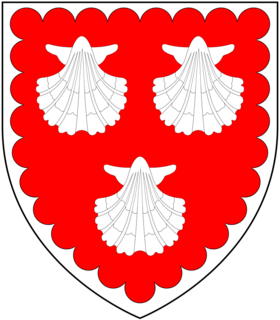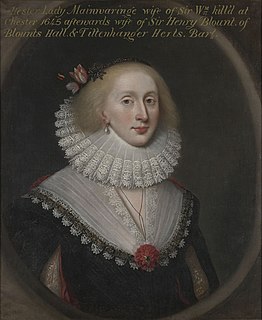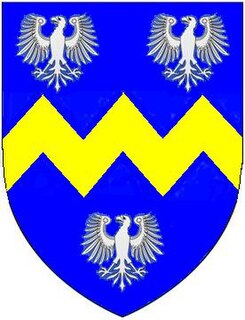This page is based on this
Wikipedia article Text is available under the
CC BY-SA 4.0 license; additional terms may apply.
Images, videos and audio are available under their respective licenses.

John Smith (1656–1723) of Tedworth House, Hampshire, was an English politician who sat in the English and British House of Commons between 1678 and 1723. He served as Speaker and twice as Chancellor of the Exchequer.

Upton is a civil parish north-east of Kislingbury and south-west of Dallington, in Northamptonshire, England about 3.5 miles (6 km) west of Northampton town centre along the A4500 road. Formerly a scattered hamlet, it is now part of the town. The area west of Northampton is now a major area of expansion of the town and named Upton after the parish.
Lieutenant-General Harry Mordaunt was an English soldier and politician who sat in the House of Commons between 1692 and 1720.

Lieutenant-General Thomas Erle PC of Charborough, Dorset was an English army general and politician who sat in the House of Commons of England and of Great Britain from 1678 to 1718. He was Governor of Portsmouth and a Lieutenant-General of the Ordnance.
The Samwell Baronetcy, of Upton in the County of Northampton, was a title in the Baronetage of England. It was created on 22 December 1675 Thomas Samwell, later Member of Parliament for Northamptonshire and Northampton. He was the great-grandson of Sir William Samwell, Auditor of the Exchequer to Queen Elizabeth I of England. The second Baronet sat as Member of Parliament for Coventry. On the death of the fourth Baronet in 1789, the title became extinct.
Samwell is a surname or given name, and may refer to:
Sir William Samwell (1559–1628) of Northampton and Upton was an Auditor of the Exchequer to Queen Elizabeth I of England. He was knighted at the coronation of King James I of England in 1603.
Sir Arthur Onslow, 1st Baronet was an English politician who sat in the House of Commons at various times between 1641 and 1685.

Sir Thomas Pope Blount, 1st Baronet was an English baronet.
There have been two Duke Baronetcies; both are now extinct. The first created 16 July 1661 for Edward Duke in the Baronetage of England, the second created 5 December 1848 for James Duke in the Baronetage of the United Kingdom.
Sir Adolphus Oughton, 1st Baronet of Tachbrook, Warwickshire, was a British Army officer and politician.
Sir Jonathan Cope, 1st Baronet, was a British landowner and politician who sat in the House of Commons from 1713 to 1722.
Sir Rushout Cullen, 3rd Baronet (1661–1730), of Upton, Ratley, Warwickshire and Isleham, Cambridgeshire, was an English politician.

Sir William Drake, 4th Baronet (1658–1716), of Mount Drake, and Ashe House, Musbury, Devon, was an English politician.
Jonathan Cope (1664–1694) was a British landowner and politician who sat in the House of Commons from 1690 to 1694

Sir Thomas Mackworth, 4th Baronet of Normanton Hall, Rutland was a British landowner and politician who sat in the English House of Commons between 1694 and 1708 and in the British House of Commons between 1713 and 1727. He was a speculator in mining.

Sir John Walter, 3rd Baronet of Sarsden House, Oxfordshire was a British politician who sat in the English House of Commons between 1694 and 1717 and in the British House of Commons from 1708 to 1722.






